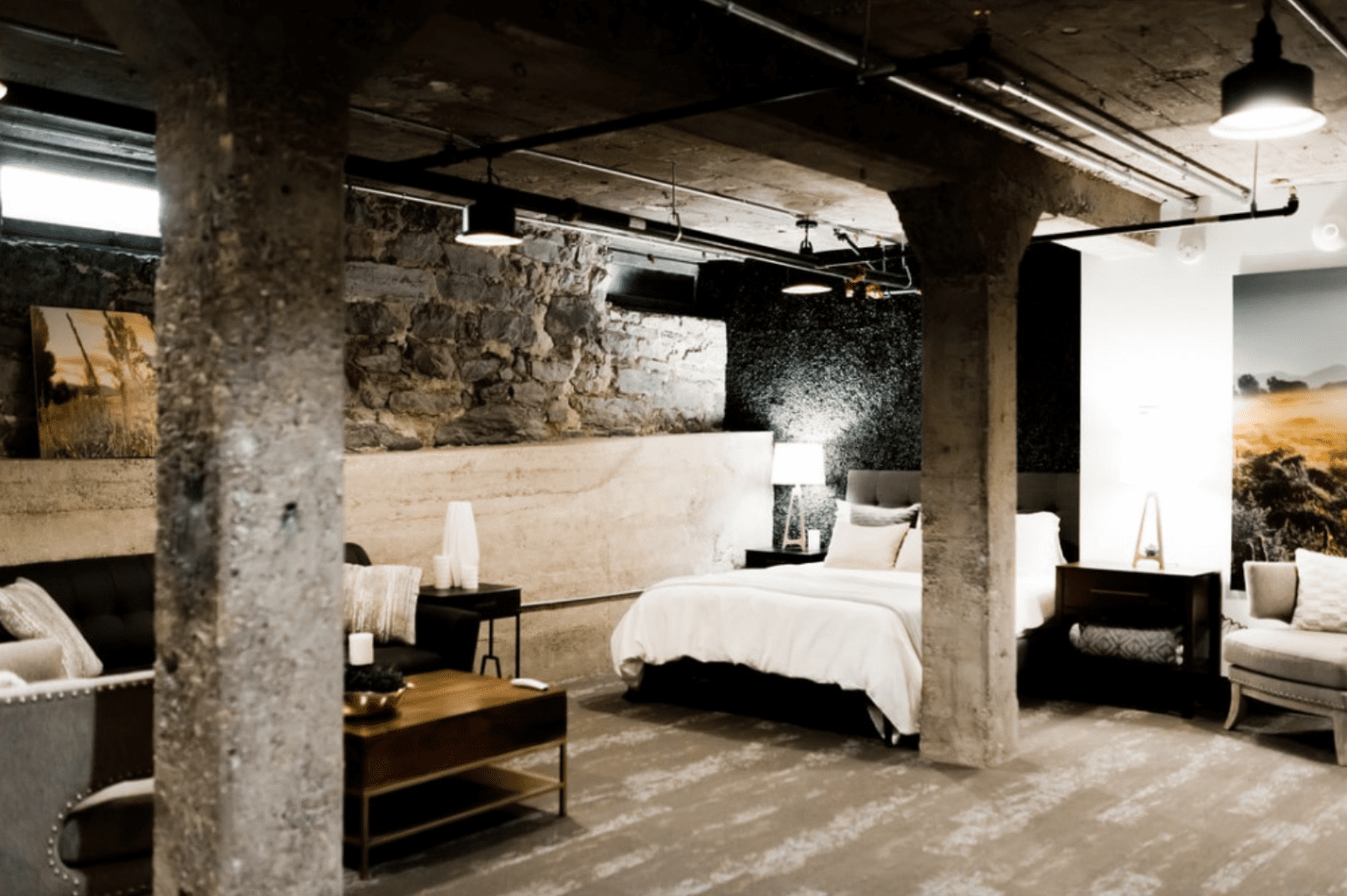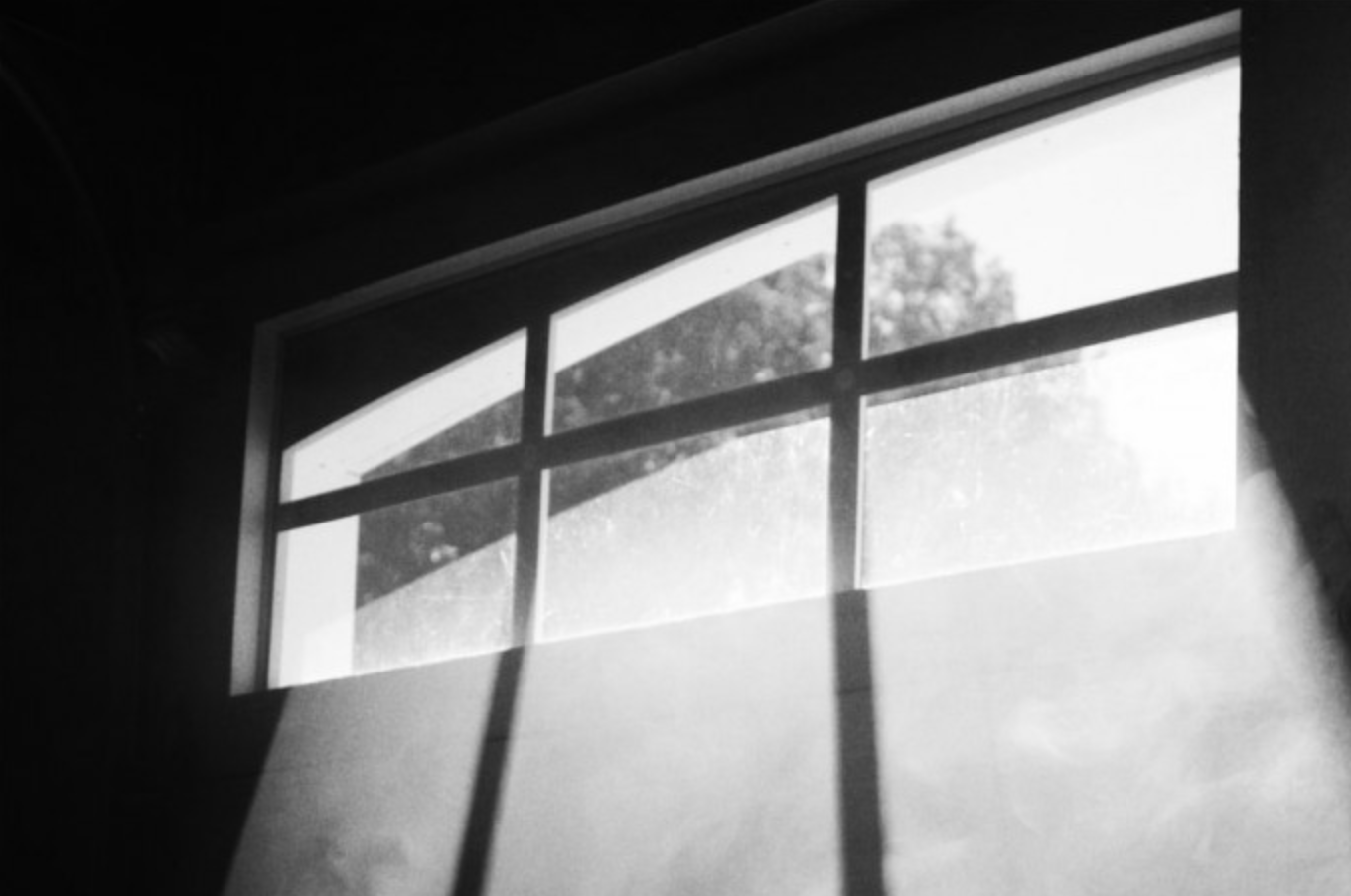If you have been reading my blog, you probably know that my wife and I built a new house in Delaware in March 2020.
One of the first things the builder told us is that we should put a dehumidifier in the basement. He actually repeated this on various occasions. He said it is not expensive to buy one and it is definitely worth the money.
So, it looks like my basement needs a dehumidifier. But does every basement need one?
You may live in an area that is not particularly humid, but regardless of your location, basements tend to hold more humidity than other parts of your home. The main reason for this is that moisture can get into the foundation through water leaks, landscaping, and gutters. Using a dehumidifier will ensure the humidity level of your basement is adequate.
So, what is too much humidity in your basement? According to the Environmental Protection Agency (EPA), “indoor relative humidity should be kept below 60% — ideally between 30% and 50%.”
I expect my basement’s relative humidity will frequently be above 50 percent. Otherwise, my builder would not have recommended a dehumidifier. But I would think that If you can determine that your basement is within 30% and 50% relative humidity, you may not need a dehumidifier. Or you can potentially manage your humidity in your basement without a dehumidifier. But it is important to validate that because, if you are wrong, it may be costly in the long run.
Signs That You May Need More Than a Dehumidifier In Your Basement
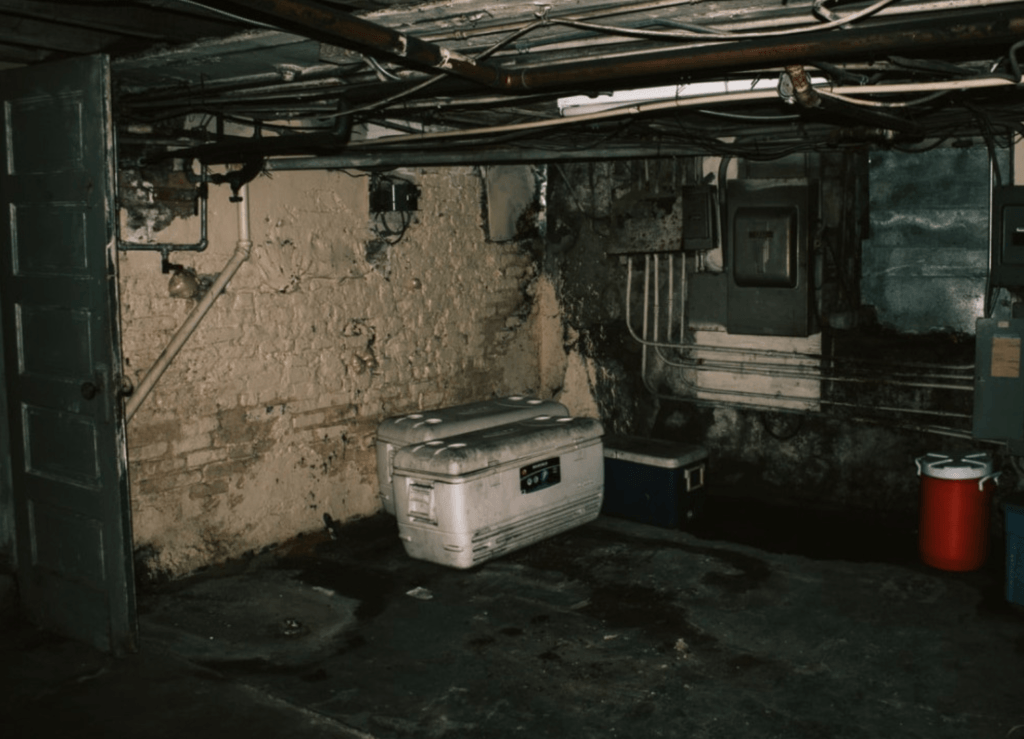
Before I go any further, I want to clarify that in this blog post, I am trying to answer why I need a dehumidifier for a basement in a new house like mine.
I am assuming that my house is structurally sound, and there are no underline problems that can cause extreme humidity in my basement. I have already tested the sump pump and works as expected.
But if you have had your basement for a while, it may have signs showing that you may need help beyond just getting a dehumidifier.
- Mold spots are visible
- You see condensation on windows
- It feels stuffy
- There are musty odors
- You see water stains
In my case, I’m trying to understand what could happen and prevent it if at all possible. I don’t mind paying for a solution at a reasonable price because the longer I wait, the more expensive it may be to fix the problems.
Apart from unpleasant smells caused by a damp basement, excessive humidity can also result in rot and overall deterioration of your house structure.
Most importantly, mold and mildew can have negative health effects, especially to people with allergies, asthma, or compromised immune systems.
How Do Dehumidifiers Work?
Now that I’m convinced that I would benefit from putting a dehumidifier in my basement, I want to know how they work at a high level.
Dehumidifiers can differ from model to model, but they all operate on similar principles:
- Dehumidifiers’ main goal is to reduce the humidity level in your home.
- They draw the room air into the appliance by using a fan.
- This air then passes through cooling coils.
- This causes the air to condense and fall into a bucket within the unit.
- Warmer air is then redirected back into the room.
- Most modern dehumidifiers have a switch that prevents the appliance from running if the bucket is full.
- The level of humidity is typically regulated by a humidistat within the unit.
How to Prevent Humidity and Moisture in a Basement?
Adding a dehumidifier to my basement is just one line of defense against humidity. Even though my house is brand new, there are things I need to keep in mind to prevent humidity in the future.
This video from Specific Love Creations lists several tips to prevent humidity in your basement. These are some of his recommendations I will keep in mind.
- The first simple and easy way to help prevent moisture from seeping through, especially if you have concrete walls or concrete blocks, is to use waterproofing paint.
- If you have a crawlspace under your house, you can put a barrier of plastic over it. This will help some of that moisture in the dirt from rising and getting into the house.
- Make sure cold water pipes are covered to prevent air condensation and formation of water droplets and of course, make sure they are not leaking.
- Check the drainage tube from the HVAC system and around all of your HVAC piping to make sure there are no leaks.
- Look on the exterior of the house, look at the ground level, and see exactly which way it’s sloping. Make sure that it is slipping away from the house if it’s slipping toward the house you may need to do some groundwork so you can get that ground slipping away and it’ll drain more of the water away from the house then towards it.
- Check your gutter system to make sure it is draining correctly from above and not dropping in the wrong area. Bottom line, you need to make sure it is flowing away from the house.
Will a Dehumidifier in the Basement Help the Whole House?
Thinking of issues with humidity in my basement is all I want to think about right now, but I wonder if the rest of the house may also benefit from it. I certainly hope I don’t have to worry about humidity in the rest of the house.
I couldn’t find a straight answer to this question. While a dehumidifier in the basement may indirectly help the rest of the house, you are only taking care of the humidity in the basement. To take care of the rest of the house, you need to install an expensive non-portable whole-house dehumidifier.
In other words, each space in the house needs to be assessed separately if you are using portable dehumidifiers.
The good news is that by focusing on the basement, you are taking care of the area more likely to contain excess humidity.
In my case, I will just handle the basement for now. If we feel that the rest of the house also is humid, I will address that potential issue then.
If you are interested in installing a whole-house dehumidifier, Crawl Space Ninja has an article listing the six recommended areas to install a dehumidifier.

How to Choose a Dehumidifier for Your Basement
Because I am focusing on a specific area, my basement, as opposed to the whole house, a portable dehumidifier should do the job.
Dehumidifiers are available in many sizes. Three of the most common sizes are 30, 50, and 70 pints. Dehumidifiers are classified by the amount of water they can remove within 24 hours. For example, a 30-pint dehumidifier is expected to remove 30 pints of water within 24 hours.
Unless you have been in a London pub drinking beer, you probably don’t know how much a pint is. To clarify this point, 8 pints equals 1 gallon.
So, there are two main things to do before buying a portable dehumidifier:
- Calculate the square footage of your basement
- Determine how humid the basement is
These two factors determine the capacity of the dehumidifier that you should buy. ENERGY STAR® offers the table below to estimate the capacity needed.
Since my basement is within 1,500 and 2,000 Sq. Feet and I consider it moderately damp, I should be Ok with a 22-pint dehumidifier. Although to be conservative, I should buy the highest capacity humidifier I can afford, mainly because there is not a big difference in price, as you’ll see below.

Which Dehumidifier Did I Choose?
As you can imagine, there are many options to choose from. After a couple of hours of Amazon.com research, I narrowed my choices to these three products. I was surprised to see that there is no huge prize difference between a 1,500 Sq Feet and a 4,500 Sq Feet capacity dehumidifier. The difference is $60 for the Vremi unit and $70 for the Homelabs unit.
My choice is the Frigidaire (50 Pint capacity). The video below (The best basement humidifier) convinced me that it is the best choice. It isn’t popular in Amazon; it only has six reviews, but it is a 5 out of 5. That, together with the convincing Youtube review below, made it clear for me. It is also $20 cheaper.
| Dehumidifier | Rating | Price |
| Vremi 4,500 Sq Ft | 4.7 out of 5 | $279.99 |
| HomeLabs 4,500 Sq Ft | 4.6 out of 5 | $279.49 |
| Frigidaire (50 Pint capacity)Model #FFAD5033W1 | 5 out of 5 | $259.99 |
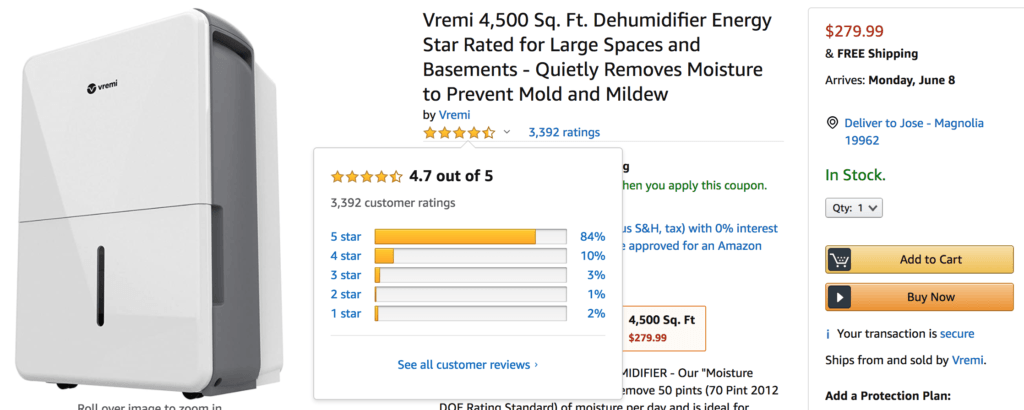
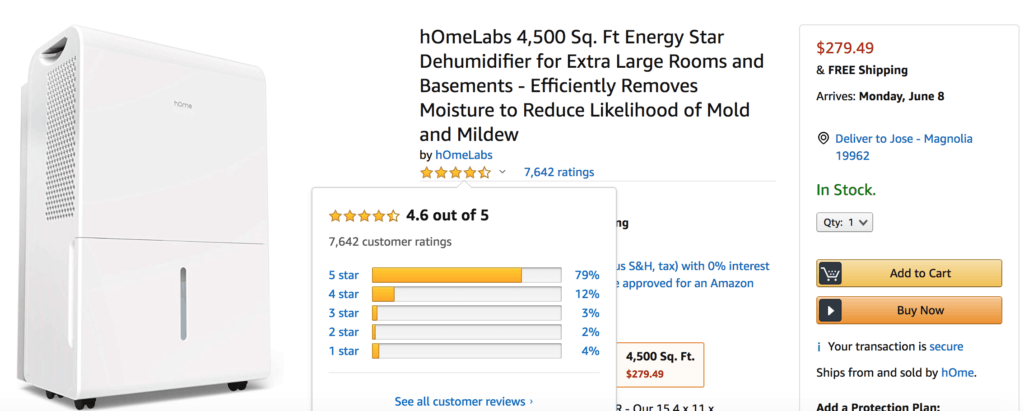
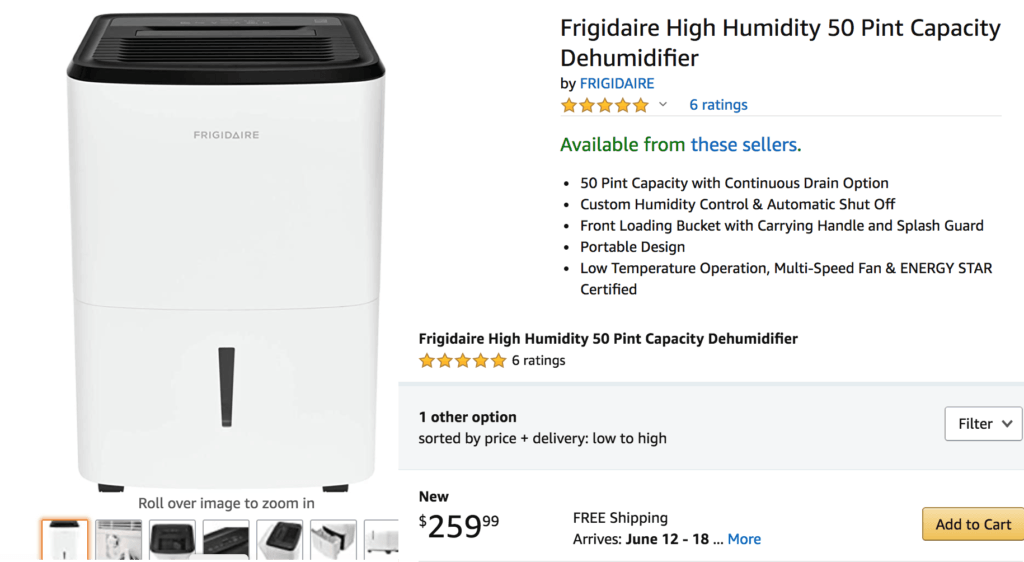
The Best Basement Dehumidifier – A Buyer’s Guide
This is an in-depth, compelling video that goes over all of the features you want to look for in a basement dehumidifier. The conclusion is that the best basement humidifier is the Frigidaire (50 Pint capacity)Model #FFAD5033W1. The HomeLabs, 4,500 Sq Ft, is also shown as a good option.
I Have Received The Dehumidifier and It’s Already in my Basement
My dehumidifier is already in the basement. I haven’t set up a drain yet because I’d like to see how it works with the water reservoir first. It seems to be working well. I will update this post with updates.



Update After 7 Days of Usage
I have had the dehumidifier for 7 days now and every single day I have had to empty a full bucket of water. We were shocked to see how much humidity there was in our basement even though it is not obvious.
The Frigidaire unit is working like a charm. We are actually considering buying another one for the house as we often have a relative humidity greater than 60%.
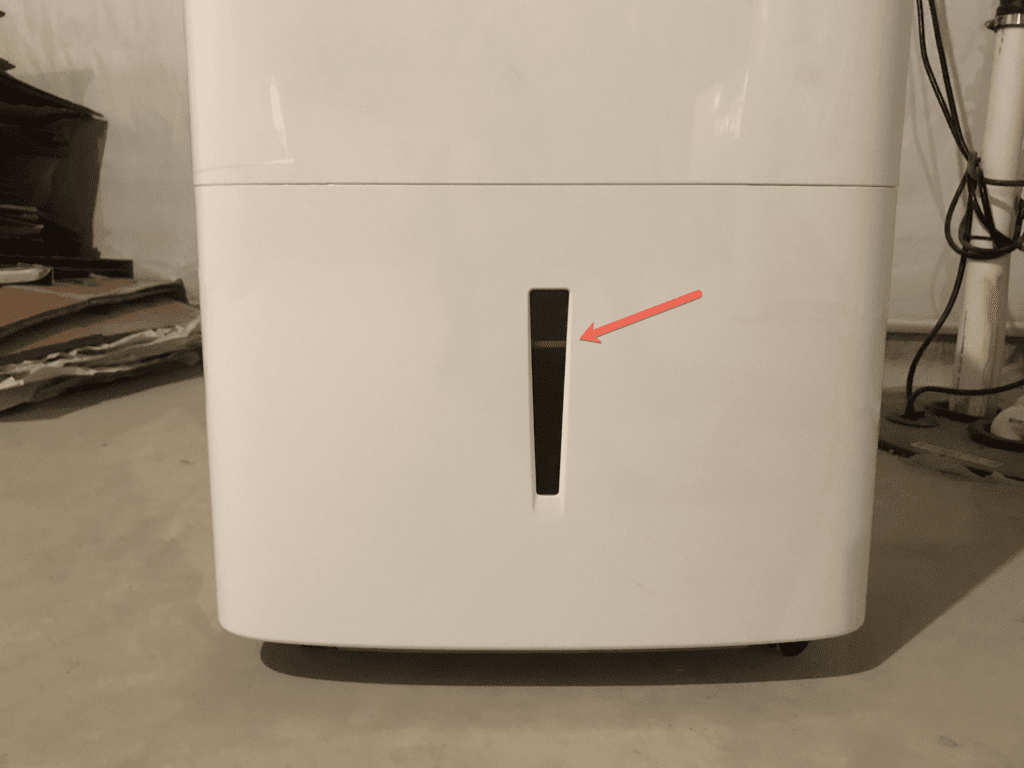
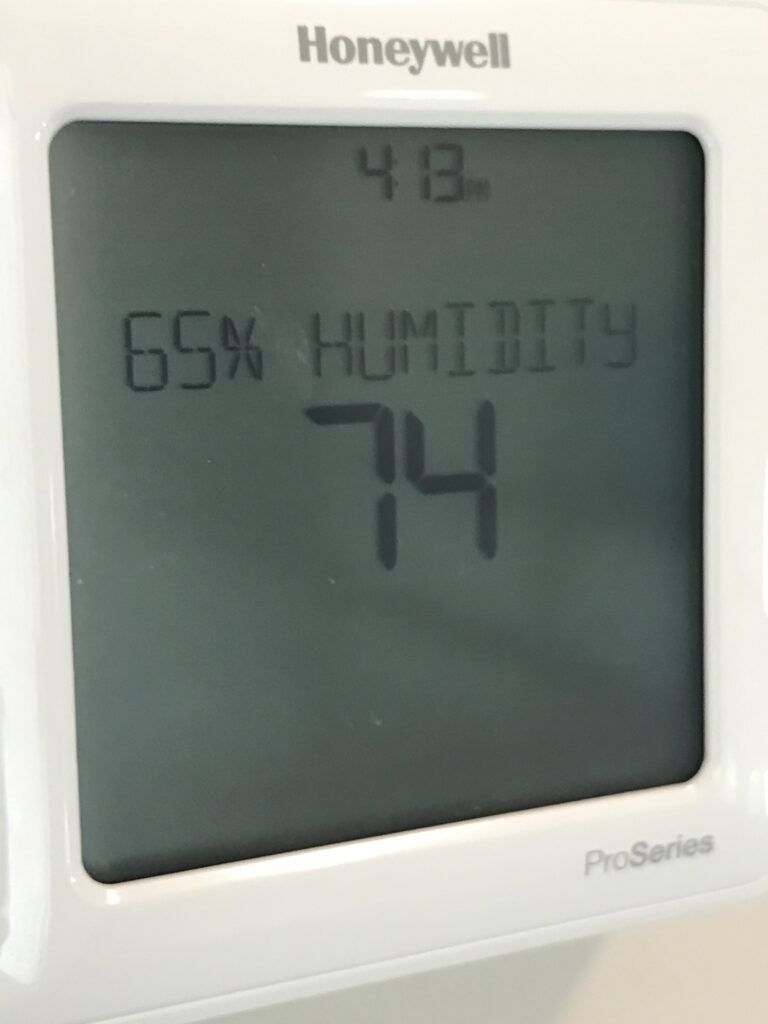
Related Posts:
